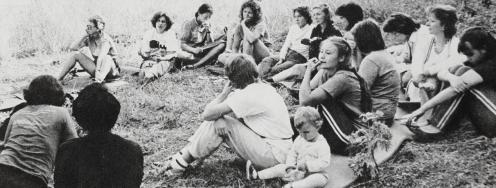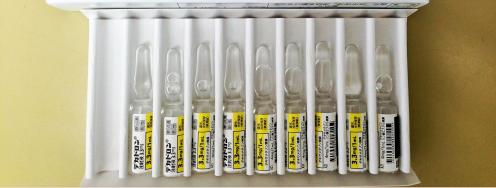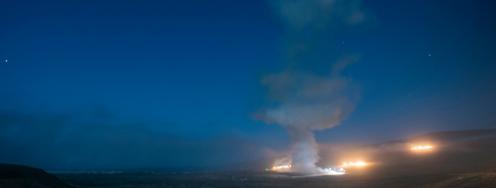Nuclear Policy and the Next Administration
On the radar: Obama’s nuclear record, budget generosity; Positions and context for a Romney administration; Russia goes for a heavy; Different rules for Asian arms race; Putin’s exercises; and Photos from the Y-12 break in.
On the radar: Obama’s nuclear record, budget generosity; Positions and context for a Romney administration; Russia goes for a heavy; Different rules for Asian arms race; Putin’s exercises; and Photos from the Y-12 break in.
October 23rd, 2012 | Edited by Benjamin Loehrke and Marianne Nari Fisher
Obama’s nuclear record & the outlook after 2012 - Conservatives have tried to paint the president’s nuclear policies as disarmament. In fact, the President’s nuclear policy changes and agreed reductions have been relatively modest while his spending on nuclear weapons “has been downright generous,” notes David Hoffman in a detailed backgrounder on President Obama’s record on the U.S. nuclear arsenal.
--Questions for an Obama 2nd term: “Clearly, Obama is not a disarmament dreamer. But what would he do in a second term? Would Obama consider negotiating deeper cuts in the arsenals with Russia? Would he take missiles off prompt launch?”
--Context for a Romney administration: “If elected, he would face some pressures similar to those confronting Obama. The large number of Russian tactical nuclear weapons is a continuing worry. Congress is unlikely to approve such a large defense spending increase, and the new president may have to find ways to scale back the strategic nuclear deterrent as a result -- perhaps with fewer submarines or missiles. The NATO allies are restive about continuing to station American nuclear bombs in Europe. The question is what would Romney do once in the White House -- and how much does his campaign rhetoric really say about where he would take nuclear weapons policy?” http://bit.ly/PnZ6vo
Rating Romney on nukes - How does the Republican presidential candidate measure up on nuclear security policy? Hard to tell, notes Kingston Reif in The Bulletin of the Atomic Scientists, but several statements from the campaign “do not inspire confidence.” Full analysis of Romney positions on New START, Iran, missile defense, and Russia. http://bit.ly/TQhYP9
Watched the Giants crush the Cards last night instead? - We’re a San Francisco-based foundation, so we understand. Full transcript of the presidential foreign policy debate here. Keywords: Iran, nuclear, and ships that go underwater. http://wapo.st/TE391O
Welcome to Early Warning - Programming note: Your usual Early Warning editor will be off the grid until next Tuesday. The talented Mary Kaszynski, policy analyst at the American Security Project and former Early Warning co-editor, will be pinch hitting as editor.
--Subscribe to our morning email or follow us on twitter. Have a tip? Email earlywarning@ploughshares.org. Want to support this work? Click here.
Getting heavy - The Russian Defense Ministry reportedly approved plans to begin manufacturing a new heavy, liquid-fueled ICBM before the end of 2012. Global Security Newswire has the story. http://bit.ly/SmyG9D
Book - “Our Own Worst Enemy? Institutional Interests and the Proliferation of Nuclear Weapons Expertise” by Sharon Weiner for MIT Press. Overview and ordering info here. http://bit.ly/SfRsS4
NTI Twitter Q&A - What can we learn from the Cuban Missile Crisis and how can the U.S. reduce the likelihood that new "Cuban Missile Crises" don't erupt in other parts of the world? Join NTI President Joan Rohlfing (@NTI_WMD) in a Twitter Q&A on solutions to today’s nuclear threats. Wed. Oct. 24 @ 2PM EST. Here’s the link to the Twitter Q&A, tag questions and comments with #MissileCrisis. http://bit.ly/OZhzwL
Nuclear competition in Asia - “The lessons learned from the Cold War nuclear competition remain extremely relevant to Asia, but they have only partial application because the rules are somewhat different,” writes Michael Krepon at Arms Control Wonk.
--What makes South Asia different: weight class difference between China, India and Pakistan; unclear hierarchy; presence of extremist groups, new pathways of proliferation, and a lack of agreements limiting competition. Full post here. http://bit.ly/WG4jAr
A next stage for CTR - Nunn-Lugar may be on the rocks, but there are cooperative initiatives the U.S. and Russia can pursue to advance nuclear security, writes William Tobey in Foreign Policy. Recommendations: Use joint experience in nuclear facility security to form “guidelines to advise other nations,” offer these guidelines at the 2014 Nuclear Security Summit and implement through GICNT, and craft a new agreement to dispose of excess nuclear materials and technologies after the US election. http://bit.ly/Vm5T5y
Quote - “Understand your enemy’s real views, especially on nuclear weapons. In October 1962, did anyone in Washington know that Soviet leader Nikita Khrushchev did not believe in ‘first strike,’ the notion that Moscow could unleash a massive nuclear attack and destroy all America’s nuclear forces and thus not face a counterstrike?” - Walter Pincus writes at The Washington Post, shedding light on the many lessons to be learned by the Cuban Missile Crisis. http://wapo.st/SfXLFd
Putin exercises - Vladmir Putin presided over a series of nuclear exercises and test launches that included all three components of the nuclear triad. This just a week after Moscow suggested sunsetting Nunn-Lugar. Why all the posturing? Suggests Alexander Golts for The Moscow Times, Putin might be simply trying to “make the Americans sweat it out every day, worrying about the fate of Russia's nuclear warheads. In other words, nuclear deterrence, Russian-style.” http://bit.ly/SmA4ZY
Y-12 photos - What did it look like after three peace activists including an 82-year old nun breached security at the Y-12 nuclear facility? Messy. Frank Munger at the Knoxville News Sentinel has recently released photos of the site. http://bit.ly/Ux6iX7



